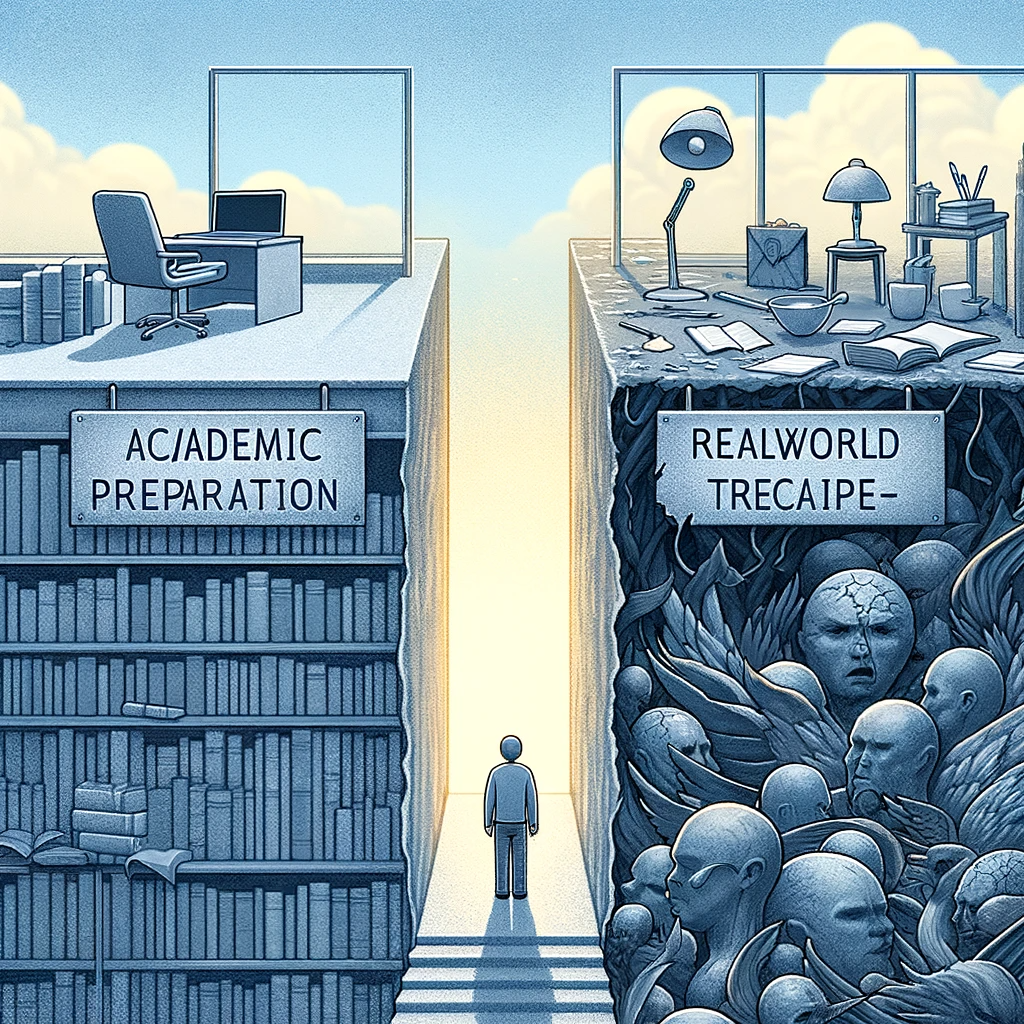The Reality of Transitioning to Private Practice
Mental health higher education often falls short in preparing new counselors for the realities of private practice. This gap in education fails to paint an accurate picture of what awaits them the day after getting their license. Many counselors, including my partner, were blindsided upon entering the field. Research indicates that burnout rates among new therapists are alarmingly high, especially when exposed to high-intensity cases without proper training or support, which seems to be the norm for new therapists.
Supporting Research:
- “An Open Conversation about College Mental Health” from TCU Student Success (Read More)
The Gap in Academic Curriculum
While the academic curriculum rightly emphasizes theoretical knowledge, it may do counselors an injustice by not including more classes on practical business skills essential for running a successful private practice. There’s an argument to be made that this omission is unethical, especially given the capitalistic structure of our society that is largely out of our control.
The Pipeline from Education to Practice
The pipeline from traditional education results in therapists feeling hopeful and excited initially, only to quickly feel unprepared to navigate the complexities of the real world. They face extremely intense client cases, unlimited amounts of fees, limiting bureaucratic corporate systems, poor wages, and the negligence of management/insurance companies. All these factors contribute to feelings of hopelessness, burnout, job dissatisfaction, and eventually leaving the field altogether.
Supporting Research:
- “Navigating a Path Forward for Mental Health Services in Higher Education” from the Association for University and College Counseling Center Directors (Read More)
The Narrative of Financial Expectations in Mental Health
There’s an underlying narrative within the mental health field that seems to gaslight professionals: “You did not get in the mental health field to make money lol!” This perspective, often encountered during education, suggests that counselors should expect to get multiple jobs just to pay bills. While the primary motive for most is to help people, the idea that one shouldn’t seek financial stability and success is not grounded. It’s valid for counselors to seek financial stability, and the high tuition and investment in education should hold higher education institutions accountable to ensure success, including the know-how and option of starting a private practice.






